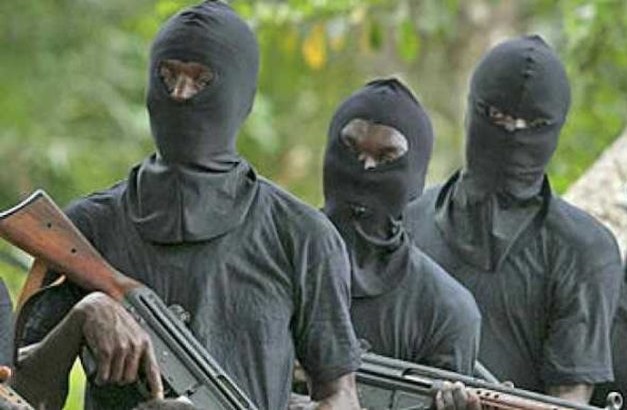The issue of insecurity in Nigeria has become something of grave concern to all well-meaning citizens, most of whom continue to wonder how the country arrived at such a dastardly situation where no one is safe; and worse still, rather than abate, the problem is escalating and now totally out of control. Insecurity in Nigeria is a recurring phenomenon that threatens the well-being of citizens from East to West, North to South, all around.
The south-west of Nigeria is plagued by a surge in cybercrime, armed robbery, kidnapping, domestic crime, extrajudicial killings, herder-farmer conflicts, ritual killings, and banditry. The south-east is a haven for ritual killings, commercial crime, secessionist agitation, kidnapping, herder-farmer clashes, attacks by unknown gunmen, and banditry. The south-south remains threatened by militancy, kidnapping, and environmental agitation. The north-east has been subject to a humanitarian crisis lasting over a decade and caused by the Boko Haram insurgency and the Islamic State in West Africa Province. Meanwhile, the north-west is enmeshed in illegal mining, ethnoreligious killings, and banditry. It is, therefore, that insecurity in Nigeria has assumed a soft spot in political stance and that it has claimed thousands of lives and extensive damage and loss of property.
Since Nigeria’s independence in 1960, the corrupt system has birthed the situation we have ranging from the 1963 crisis to the military coups. The 1966 coup is unarguably the ugly cornerstone for the insecurity experienced today in Nigeria. The immediate consequence of this coup was mutual distrust between Igbo ethnic groups and the Hausa/Fulani ethnic groups. That distrust provides strong subterranean currents driving insecurity today. It worsened the ethnic mistrust between the Igbo and perhaps all other ethnic groups, particularly the Hausa/Fulani. Maybe, the distrust made it extremely challenging for a Nigerian of south-eastern origin to become the country’s president, further fuelling the perceived marginalisation of the region in the power control equation.
Also, the Niger Delta communities, through several of these militias, protested the unjust and uncompensated exploitation of their natural resources now wholly owned by the federal government. The militants attacked government security agencies, government infrastructure and installations, oil exploration installations of foreign multinational companies and continuously took several foreign oil workers hostage. The Niger Delta militancy technically brought in and domesticated the kidnapping-for-ransom that has been widely adopted by hoodlums and bandits in terrorizing the country.
The presence of oil and the famed wealth of Nigeria, made it attractive to all versions of visitors. Although these migrations were not initially crime-threatening, many immigrants were also Islamic evangelists who responded to the message of the 1979 Iranian revolution to Islamize Africa. The heightened clashes between nomadic pastoralists(herdsmen) and crop farmers in many southern parts of the country, particularly in the south-east geopolitical zone, were interpreted as an invasion of the region by northern elements.The government’s politicization of the insurgency and terrorism give headroom for their rapid expansion and replication despite the pressure from neighbouring countries to contain them. However, poverty, and neglect of the youth in many of the northern states create, ready pools of recruits who find solace in the use of ammunition.
According to BusinessDay, rising violence in the country cost Nigeria 11% of its GDP with N119 billion. Similarly, projects worth N12 trillion were abandoned across Nigeria due to insecurity and other challenges according to data from Town Talk solutions. In the same vein, the global peace index compiled in 2021 by the Institute for Economics and Peace ranked Nigeria 146th out of 163 countries with a score of 2.712. While among sub-Saharan African countries, the country was ranked 39th out of 44 countries examined in the region. According to experts, insecurity affects economic growth by drying out investments, increasing unemployment, and dwindling government revenue, among others.
The impact of insecurity is reflected in the overall performance of Nigeria economy; investment inflow. Asat 2020, over $40.6 billion worth of foreign investments were diverted from the Nigerian economy as a result of insecurity according to the global terrorism index.This had implications for job creation and economic prosperity as purchasing power declined. Nigeria is now regarded as the world’s poverty capital and has an estimated 91 million people living in extreme poverty which is projected to reach 106.6 million by 2030. Telecommunication companies were not left out as MTN projected a possible disruption in service provided due to rising insecurity challenges.
The insecurity challenge also affected other sectors in terms of government revenue allocation as the security budget continues to increase year in year out.Data from ‘BudgitIT shows that in 2020 the federal government allotted N1.78 trillion for security expenses which is approximately an 83.7% increase from the N969 billion allocated for the same in 2015.
Also, as major regions and states in the country became the hotspot for activities that threatened peace and security, people were forced to move to safer locations within and outside the country. Consequently, places like Abuja, Lagos, etc. are gradually becoming home to migrants resulting in the overpopulation of these places.
The possible and viable solution is to solve unemployment, this is critical to ensuring a safe society with progressive and productive individuals working hard to make the country great.To be secured, we must revamp our leadership recruitment criteria and stick to them honesty and objectively. There is a need to interrogate the type of education that we are giving to our younger generation. Is it one that guarantees our safety tomorrow or one that will pull us deeper into insecurity? These are issues that we must interrogate critically.
– Alasan Serah Damilola
Prince Abubakar Audu University (PAAU) Anyigba, Kogi State.




